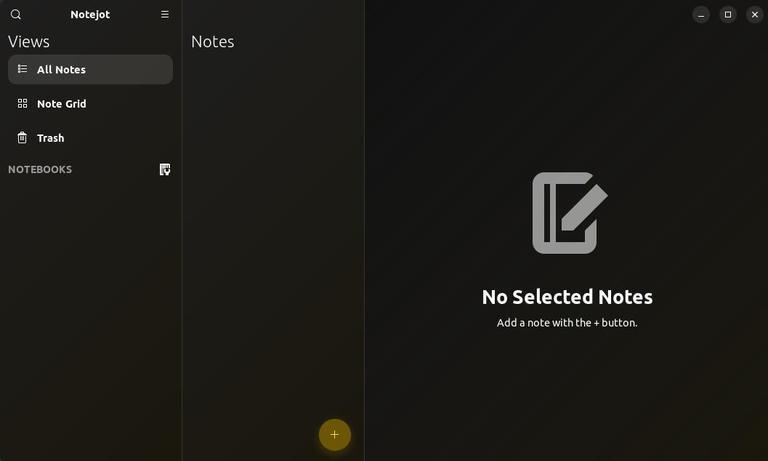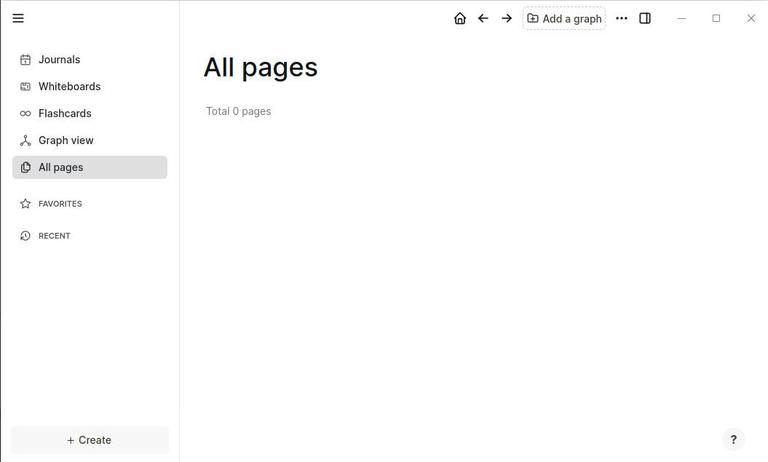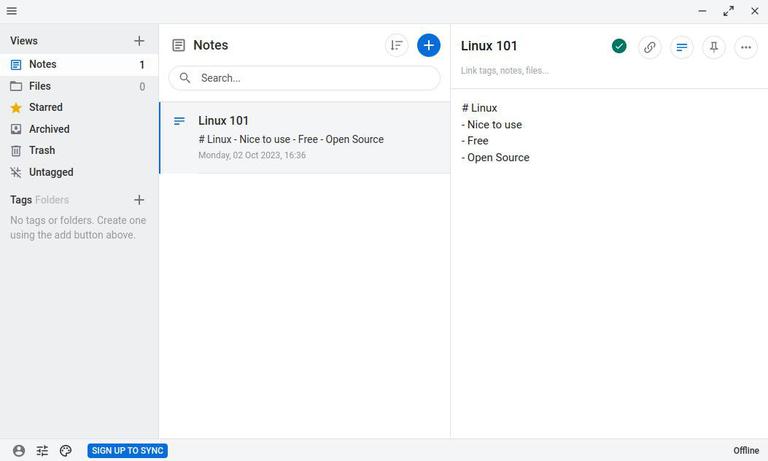Note-taking apps have become a norm in the modern era of computing, and how good your note-taking app is, has a direct impact on your productivity. When it comes to Note-Taking apps on Linux, there are many free and open-source applications with their unique sets of features and capabilities. So in this article, we will explore and try to take a look at the 11 Best Opensource Note-Taking apps for Linux that are available for that platform and respect your privacy and security while offering of class experience.
11 Best Open Source Note-Taking Apps for Linux
1. Zettlr
Zettlr is a free and open-source Linux note-taking app, that supports markdown formatting. The app is also probably the only one on the list to support a tabbed layout. The app also features auto-correct functionality making it a very powerful tool overall.
The app also has a dark mode, themes, and tons of other features. Including the ability to schedule dark mode. It also has good searching capabilities, making it suitable for a rich note-taking workflow. Zettlr however does not have a mobile client and sync capabilities.
Features:
- Support for tabs.
- Supports full markdown with images and code.
- Can handle citations.
- Supports linking notes.
Installation:
flatpak install flathub com.zettlr.Zettlr

Zettlr
2. NoteKit
NoteKit is a GTK application, available on both Linux and Windows. Making it a good choice for most people. The app supports markdown format and writing with a stylus or touchpad.
The app uses folders to structure the content and also auto-saves everything. It’s completely free and open-source, making it a valuable choice for Linux and privacy enthusiasts alike. It should be noted that NoteKit does not offer a mobile client or syncing capabilities. So if you need those, later entries in this list might suit you better.
Features:
- Supports written notes.
- Support for checklists.
- Supports for images and math formulas.
- Support for syntax highlighting in code.
Installation:
sudo snap install --edge notekit

NoteKit
3. GNote
GNote is a GNOME application for Note-taking. Being a native application, it fits well on distros using the GNOME desktop environment. However the greatest feature of GNotes is not its GNOME base, but its capabilities of creating a Knowledge Base.
GNote can be used to create an interlinked system of notes, whenever the name of a note is added to another note in GNote it creates a clickable link between the two, making it easy to switch to and from the notes to related ones. Another great feature related to this is that, if the name of a note is changed, it also changes the link to all other notes that refer to it. This makes for a very stable and versatile collection of interconnected notes.
Features:
- Supports interlinking notes automatically.
- Supports auto-updating links.
- Supports notebooks for organization.
Installation:
sudo apt install gnote

Gnote
4. NoteJot
NoteJot is a basic open-source Linux app, with a good user interface. Unlike some other contenders, NoteJot’s UI is a selling point, it’s extremely user-friendly and modern. You can easily write notes, and format them, making it a WYSIWYG (What You See Is What You Get) application. Unlike other apps that use markdown, NoteJot does not support markdown. It also allows you to create notebooks.
Though the app feels modern it does lack some features the most important being the inability to sync across devices, but if you only want local on-device notes and a simple app to manage all your notes then NoteJot is an excellent choice.
Features:
- Supports notebooks.
- Has a modern UI.
- Supports search.
Installation:
flatpak install flathub io.github.lainsce.Notejot

NoteJot
5. Xournal++
Xournal is a Linux app with cross-platform support on macOS and Windows as well. The app looks outdated but functionally it does work well.
If you take notes by hand, then it might be one of the best choices for you. It supports stylus pressure sensitivity. It can also choose a lot of paper backgrounds to choose from. If you want to export these notes, then Xournal can export them to PDFs or PNG and has a lot of tools, brushes, pens, and text box capabilities among others. Overall Xournal++ is a great app especially for Handwritten notes, despite its looks.
Features:
- Supports stylus and handwritten notes.
- Can annotate PDFs.
- Can export notes as PDFs and images.
Installation:
flatpak install flathub com.github.xournalpp.xournalpp

Xournal++
6. QOwnNotes
QOwnNotes is also a native Linux app for note-taking and is made using the Qt framework. This means that the app looks right at home when using a KDE desktop environment. However, even on other desktop environments, the app does give a great experience overall.
The app has built-in support for syncing with NextCloud, git history, and many more features. It also supports rich markdown with support for code blocks, links, and even images, something that a few apps on the list can’t do. So if all you want is a native Linux app, QOwnNotes might be a great option.
Features:
- Can sync with NextCloud and OwnCloud.
- Support for git.
- Supports images and code blocks.
Installation:
flatpak install flathub org.qownnotes.QOwnNotes

QOwnNotes
7. Simple Notes
Simple Notes is a cross-platform note-taking app with sync capabilities. The app also boasts a simple and easy-to-use user interface. The app also supports markdown files which make the note-taking experience even richer. The free sync capabilities make it extremely useful. The app also has support for tags and dark mode.
The app is based on Electron, so it might feel a little heavy, but it’s not a big deal in most cases. Another great thing about the app is the fact that it can be installed as Flatpak, app images, rpm, deb files, you name it. If you can think of any file format for Linux, chances are Simple Notes is available in that format.
Features:
- Inbuilt backup capabilities.
- Markdown support.
- Supports tags.
- Cross-platform support.
Installation:
flatpak install flathub com.simplenote.Simplenote

Simple Note
8. LOGSEQ
LOGSEQ is another great app on the List, but it is not exactly a note-taking application, but a knowledge base. It can be used to create notes, write essays, or even jot down things in the mind. The best competitor might be the proprietary app Obsidian, and LOGSEQ can do almost everything Obsidian can, this makes the app quite appealing.
LOGSEQ is open source, privacy first, and has features like a Knowledge graph which make for a unique and amazing user experience. It also has features like markdown notes, whiteboard, and themes, and even has access to plugins, something that most other note-taking apps don’t even offer. Considering all this LOGSEQ is for sure a great app for note-taking.
Features:
- Support for over 150+ plugins.
- Supports markdown.
- Can be used to generate knowledge graphs.
- Has a canvas feature.
Installation:
Step 1: Download the AppImage from above link.
Step 2: Make it executable using the below command.
chmod +x file_name
Step 3: Now, click on the file and run the application for the usage.

Logseq
9. NextCloud Collectives
Nextcloud is a really popular and famous open-source alternative to Google Workspaces and Microsoft 365. And it also happens to have a Notes app built into it. NextCloud Collectives allows for notes to be taken from any device. These notes can then be synced privately on a self-hosted server, making it extremely secure and private.
If you already have a NextCloud setup, then NextCloud Notes are a no-brainer. NextCloud might not be the most feature-rich experience on the list, but it can be self-hosted and with other NextCloud services to use, it makes for a great overall package of open-source, self-hosted, and private application bundles.
Features:
- Self-Hosted.
- Collaboration with other users.
- Ability to link other documents.
- Supports Rich Text.
Installation:
Step 1: In your Nextcloud instance, simply navigate to »Apps«, find the »Circles« and »Collectives« apps and enable them.

NextCloud Collectives
10. Standard Notes
Standard Notes is an open-source, freemium Note taking app on Linux. The app allows for an easy-to-use interface and has some paid features as well. The app is also available on other major platforms like macOS and Windows, making it great for cross-platform compatibility.
As mentioned above it is a Freemium app, and for most people, the free version is more than enough. With the support of end-to-end encryption, web and offline access, and automatic syncing capabilities, Standard Notes makes for a great choice if you care about a good experience and the ability to take notes on the go.
Features:
- Spell Check by default.
- Dark and light mode.
- End-to-end encryption.
- Password protected notes.
Installation:
sudo snap install standard-notes

Standard Notes
11. Joplin
The number one app on the list is none other than Joplin. An app that has all the features that you will ever need. Joplin notes support images, videos, PDFs and even writing math equations in the notes themselves. Additionally, the notes are saved in an open format with End to End Encryption making them suitable for transfer via any cloud service.
Another great feature of the product is its universal presence, being a cross-platform app, it is natively available on Linux, Windows, MacOS, Android, iOS, and even web browsers using extensions. All this makes Joplin a perfect choice for those who own and take notes on multiple devices, and want them to remain secure and private. So, Joplin undeniably takes the crown as the number 1 Note-Taking app for Linux.
Features:
- Cross-platform support.
- End-to-end encryption.
- Web Clipper.
- Support for Plugins.
Installation:
flatpak install flathub net.cozic.joplin_desktop

Joplin
Conclusion :
In Conclusion, we can say that Linux is a better platform now than ever before. And with a lot of free and open-source note-taking apps to choose from, Linux is not at all behind the competition. Most importantly all the apps in the list are open source, so you don’t need to trust someone else, you can take a look at the code yourself, and ensure its safety. So, if you’re looking for a great Note-Taking app, you can choose from the above list.
Share your thoughts in the comments
Please Login to comment...